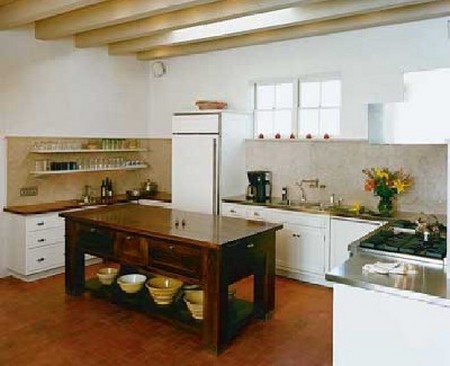All food spoils eventually, but there are ways of storing that will preserve it for longer. If food is sold sealed, do not transfer it to another container unless you are ready to eat it and always look at date stamps on any food you buy and plan to keep. Be organized: after each shopping trip, put new food at the back of your shelves, moving older food to the front so that you will use it first.
Your kitchen, larder, refrigerator and freezer should be kept clean and kitchen and larder surfaces should be dry. Keep rapidly perishable items in a refrigerator or freezer and other goods in a cool, dry larder, pantry or cellar. Do not store soaps and detergents, even in closed boxes, in the same cupboard as food or the smell will pervade the food.
Insects
It is essential to keep insects away from food. As many insect repellents contain poisons which can harm you too, use herbal insect repellents and put metal gauze screens on your windows to exclude flies and other insects.
Cover food containers with a sieve, fabric mesh or a sheet of greaseproof paper or foil. Plastic clingfilms may contain a carcinogenic plasticizer which if warm can be absorbed by foods, especially fatty ones such as cheese. It is better not to let clingfilm touch food. Never leave food uncovered in the kitchen and clean your compost container and/or wastebin regularly, or they will both attract insects.
Containers
Storage jars should always be airtight as the shelf life of many products depends on the exclusion of air. You can buy special sealed glass storage jars; otherwise the best containers are made of ceramic or stainless steel. Non-glazed porous surfaces can contain mould and bacteria in the cracks which can contaminate food so they are best avoided.
Storage rules
Biscuits, crackers, etc
Once open, store in a metal box or tightly closed jar. Do not store with cakes or they will become soggy.
Bread
Keep in the bread bin which should be as airtight as possible. Remove mouldy bread at once.
Cake
Store in a metal cake tin – keep a piece of apple or slice of bread in the tin to help it last longer. Do not store with biscuits.
Coffee (beans or ground)
Once the bag is open, roll up the top and keep it in an airtight container. If you want to keep coffee for a long time, you can freeze it.
Coffee (instant)
Always replace the lid.
Eggs
Keep in a cool place. Do not wash them or you will remove the protective film from their shells.
Flour
Store in container with a lid – not in a plastic bag. Cornflour should also be kept in an airtight jar.
Herbs
Keep dried herbs in dark, airtight containers in a cool place.
Jams, honey, marmalade
Use quickly once opened. Store in a cool larder (or the refrigerator).
Nuts
Loose nuts should not be stored in a larder as they can go rancid (instead keep them in the freezer).
Oil
Store in a cool, dark larder, rather than in the refrigerator.
Pasta, pulses, rice
Store in an airtight container.
Potatoes, root vegetables
Keep in the dark in a cool larder, pantry (or the refrigerator).
Sugar
Keep in an airtight container with a piece of bread.
Tea
Store in an airtight container.
Tinned foods
Tinned food keeps longer because the air has been kept out so beware of tins with dents (especially on the seam), rusty tins, tins with a rounded end and tins which smell odd. Keep tins in a cool, dry place. Once open, remove the contents and eat within a few days.
Vegetables (fresh)
Make sure that cool air is circulating around them.

